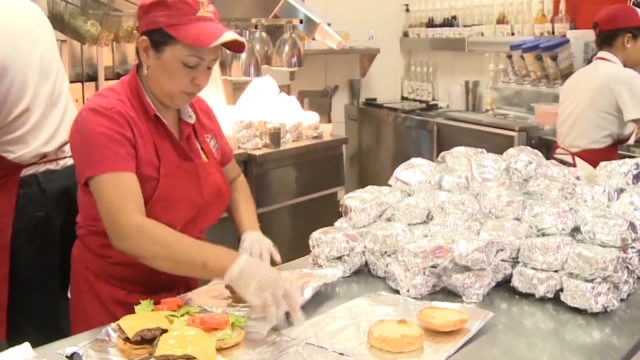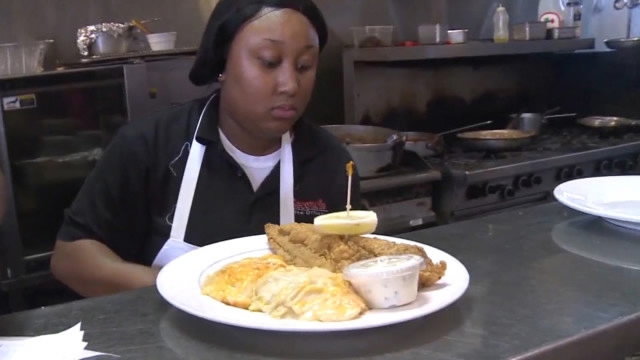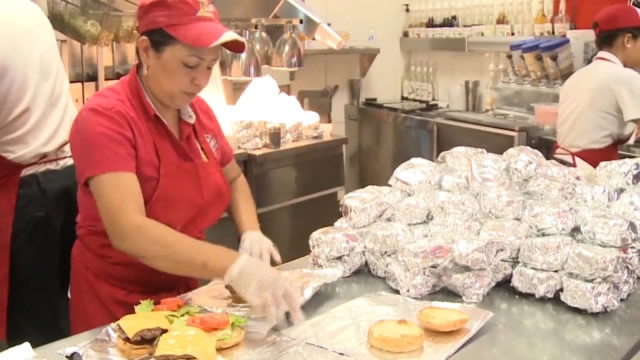
Business
09:29, 11-Oct-2017
Restaurants on track to employ more Americans than factories
By CGTN‘s Karina Huber

Dining out is fashionably in. Americans now spend more on food prepared outside of home than on groceries, partly because of urbanization.
“You look at cities around the country, people have little apartments. They don’t have big kitchens, so they are going out and they are eating and drinking together and these businesses are creating experiences for people,” said Andrew Rigie, executive director of the New York City Hospitality Alliance.

Andrew Rigie, executive director of the New York City Hospitality Alliance /CGTN Photo
Andrew Rigie, executive director of the New York City Hospitality Alliance /CGTN Photo
Younger generations tend to favor experiences over buying things. Over the past ten years, restaurant and bar spending in America has grown twice as fast as all other retail spending.
This has fueled a hiring spree. Employment in food services and drinking places fell by more than 100,000 in September, but officials say that’s an aberration likely due to recent hurricanes.
On average, over the past 12 months the sector has added 24,000 jobs per month, surpassing most other fields, including construction and manufacturing in terms of job creation this year. At this pace, it’s expected more Americans will work at restaurants than in manufacturing by 2020.

CGTN Photo
CGTN Photo
The trend can be interpreted in two ways. On the one hand, it’s positive because more jobs are being created for low-skilled workers. But on the negative, many of those jobs don’t pay very well.
According to the US Bureau of Labor Statistics, average pay for a food services worker is 14 US dollars an hour. That’s a little more than half the average private sector wage.
“If you’re a family of four you need between 40,000 and 70,000 dollars a year just to make ends meet. So an average hourly wage of around 14 dollars in the food and beverage, restaurant industry, that just doesn’t cut it,” William Rodgers, chief economist at Rutgers University, said.

William Rodgers, chief economist at Rutgers University /CGTN Photo
William Rodgers, chief economist at Rutgers University /CGTN Photo
Rodgers said the best way to tackle the problem is by gradually raising the minimum wage, something many states are doing.
Rigie said that could lead to less hiring and force some restaurants to go out of business.
“If you’re on the ground talking to business owners, they want to take care of their teams. There is high turnover in the restaurant industry. It costs a lot of money. So they want to invest in their employees and grow them through the ranks. But at the end of the day it is a small, low-profit margin business,” Rigie said.

CGTN Photo
CGTN Photo
As the minimum wage debate rages on, some economists argue it’s time for US President Donald Trump to focus on food, instead of mining and manufacturing as a means of helping the middle class.
Because, they say, the future of jobs in America seems to be in servicing people, not making things.
11159km

SITEMAP
Copyright © 2018 CGTN. Beijing ICP prepared NO.16065310-3
Copyright © 2018 CGTN. Beijing ICP prepared NO.16065310-3